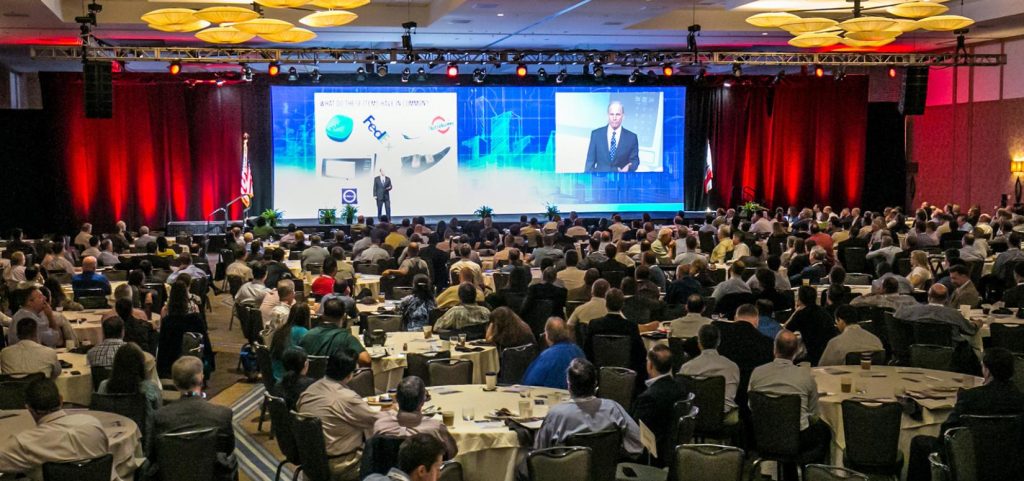What is corporate event planning?
In the business world, the role of a corporate event planner is to meticulously organise and execute events that cater to the company’s objectives and values. This planning process involves coordinating various elements such as, agenda, and speakers to make your event a seamless experience for all attendees.
At Pastiche, we boast over 25 years of expertise in the event planning industry, seamlessly orchestrating both corporate and private functions. Our distinguished portfolio includes collaborations with renowned clients like Mercedes-Benz, ITV, and BP, as well as partnerships with local councils, showcasing our versatility and commitment to excellence in every endeavour.
Why corporate events are essential for your business
Hosting a corporate event can significantly bolster your business by fostering relationships, encouraging networking, and potentially gaining media attention. These events can range from an in-person product launch, gala dinner and award ceremonies to virtual workshops, all aligned with growing your company’s reach and impact.
Planning such events ensures not only a memorable experience but one that will also resonate well with your audience, fostering long-term relationships and enhancing your brand image.
Types of corporate events
When it comes to corporate events, there is a spectrum of options available, each serving a unique purpose. Be it a product launch aimed at showcasing your latest offerings or a team-building fun day to foster camaraderie among employees; the type of event you choose should align with your company’s objectives.
Step 1: Planning Your Corporate Event
Start with the end: Understanding the purpose of your event
The first step in learning how to plan a successful event is to define its purpose clearly. Whether it’s raising awareness for a new product or hosting a corporate conference to share knowledge, having a clear objective will guide the rest of your planning process.
Decide on your audience: Knowing who your attendees are
Identifying your target audience is a pivotal step in the planning process. Whether you’re catering to potential clients, existing customers, or your employees, understanding their preferences and needs will help in tailoring the event to suit the audience, thus making it more effective and engaging.
Making lists: Detailing the components of a successful event
A well-planned event is the result of meticulous preparation. Creating detailed lists that cater to every aspect, including the event website details, invites list, and agenda can ensure a smooth execution. Remember, a comprehensive list will serve as a guide to corporate event planning, helping you step by step to organise an impactful event for your company.
Step 2: Event Budget and Event Objective

Set a Realistic Budget
Setting a realistic budget forms the backbone of the planning stage. It is essential to allocate funds wisely to various segments of the event such as venue booking, event design, and marketing to ensure a smooth flow of operations. Determining a budget early on can guide the decisions you’ll make later in the process and help avoid overspending.
Consider the type of event you’re hosting; for instance, an award ceremony might necessitate a substantial portion of your budget being allocated towards marketing and crafting a meticulously planned event with the help of a seasoned company such as Pastiche, known for creating unforgettable moments with over 25 years of expertise in the UK and on the global stage.
Event Objective: Aligning Your Goals with Your Budget
Once the budget is set, it is time to define the event’s objectives clearly. Whether you aim to boost brand awareness, facilitate networking, or celebrate a milestone, understanding your goals will steer the process of planning in the right direction. The objectives should resonate with the budget set, ensuring every pound spent serves a specific purpose towards achieving the event’s goals. Crafting a strategy that aligns your goals with your budget ensures that you not only plan the perfect event but also achieve the desired outcomes effectively and efficiently.

Step 3: Structuring Your Corporate Event Planning Team
Assembling Your Team
After setting the budget and objectives, the next step in learning how to plan a corporate event is assembling a competent team. Gathering a group of skilled individuals who cater to the various needs of hosting a corporate event is vital. Ensure to have a diverse team where every member brings a unique skill to the table, thereby enhancing the whole event experience.
Create an Events Team: Roles and Responsibilities
Creating a dedicated events team helps in delegating tasks effectively, ensuring that every aspect of the event, from the initiation to the marketing plan, is handled proficiently. The roles might include a project manager to oversee the entire process, a marketing team to build buzz around the event, and a design team to make your event visually appealing and aligned with the company’s brand image.
Clearly defining the roles and responsibilities of each team member not only fosters accountability but also promotes synergy, making the journey from conception to execution a collaborative and successful endeavour. This structured approach is the secret to hosting a corporate event that is well-organised and hits all the right notes with the attendees.

Step 4: Timelines and Deadlines to Plan a Successful Corporate Event
Establishing a Project Timeline
Creating a comprehensive project timeline is a pivotal step in organising a corporate event that stands out. Incorporate milestones such as finalising the venue, completing the event day preparations, and setting aside time for potential adjustments. Leveraging project management tools can facilitate a smoother process, ensuring that every event element is systematically aligned with your goals and objectives.
Choosing a Date: Factors to Consider
Selecting an optimal date is paramount to ensure high attendance and engagement. Consider potential holidays, industry events, and other significant dates while choosing the day. It is advisable to have a tentative date in place as early as possible, giving you ample time to make necessary arrangements and provide attendees with detailed information about the event well in advance.
Start Planning Your Corporate Party as Soon as Possible
In the world of corporate events, early planning cannot be emphasised enough. Whether you’re planning an award ceremony or a small workshop, starting early gives you a competitive edge, offering enough time to address unforeseen challenges and ensuring a well-organised event that’s in tune with your objectives.
Step 5: Start Planning Your Venue Sourcing
Selecting an Appropriate Location
Choosing the right venue sets the tone for your event. Consider the nature of the event, the expected number of attendees, and the facilities offered by the venue. Whether you’re planning a conference or a charity gala, selecting a location that aligns with the theme and objectives of your event might be the key to creating an unforgettable experience.
Venue Sourcing: Tips for Finding the Best Venue
Finding the perfect venue involves considering various factors, including accessibility, accommodation facilities, and technical capabilities. Start with a clear understanding of your requirements. Explore different avenues and don’t hesitate to seek recommendations and read reviews. Ensure to visit the potential venues personally, understanding the ambiance and logistics involved, to ensure smooth operations on the day of the event. Moreover, having a contingency plan in place for post-event circumstances is a wise strategy, safeguarding against unforeseen hiccups on the event day.

Step 6: Plan a Corporate Event With a Theme
Choosing a Theme and Format
When you plan a corporate event with a theme, it adds a special touch that can make your event a success. The theme should resonate with the objectives of the event, whether it is a formal conference or a festive year-end party. The format of the event might be a workshop, a seminar, or a product launch, each requiring a unique thematic approach. As you learn how to plan, remember that a well-thought-out theme can be a game-changer, setting the right tone and creating a cohesive experience for all attendees.
Crafting a Unique and Immersive Event Experience
To craft an immersive event experience, delve deep into the details. Organising a corporate event involves fine-tuning every aspect to resonate with the chosen theme, thereby creating a memorable experience. Consider incorporating interactive sessions, engaging presentations, and entertainment that align with the theme. Additionally, think of the post-event phase where you can share themed photos or videos, encapsulating the event’s essence and providing a cherished memory for the attendees.
Step 7: Logistics & Event Planning Checklist
Plan the Logistics of the Day
A foolproof logistic plan is your safety net on the day of the event. Event managers must ensure that every minor detail, from parking facilities to a streamlined registration process, is taken care of. Having a structured checklist that outlines every task, along with a dedicated team to manage them, ensures that every event component is orchestrated to perfection, providing a seamless experience for the attendees.
Managing the Event: Ensuring Everything Runs Smoothly
Once the day of the event arrives, it’s time to see your meticulous planning come to fruition. Managing the event entails overseeing all the operations in real-time, addressing any hiccups promptly, and ensuring that everything runs according to the plan. Be prepared with a backup plan for unforeseen circumstances and keep a calm demeanour to handle any situation gracefully. Remember, a well-managed event speaks volumes about your organisational skills and can greatly enhance your reputation in the corporate world.

Step 8: Leveraging Technology
Making Use of Technology
In the contemporary world where planning an event goes hand in hand with technology, leveraging the right tools can be a game-changer. Incorporating technology not only facilitates a smoother process but also enhances the attendee experience. Consider using project management tools, which can be a crucial part of your corporate event planning checklist, helping you track the progress and ensure every detail is taken care of efficiently.
Attendee Engagement: Tools and Strategies to Keep Your Audience Engaged
Attendee engagement is pivotal to the success of your event. Utilise technology to create an interactive and engaging environment. Apps that facilitate networking, live polls, and Q&A sessions are excellent tools to keep the audience engaged. VR and AR can be used to provide a unique experience, especially when dealing with many different types of events. Always remember, that the more engaged your audience is, the more successful your corporate event will be.
Step 9: Marketing Your Event
Promoting Your Event
Promoting your event is as crucial as planning it. A well-thought-out promotion strategy ensures that your event reaches the right audience, enhancing the attendance and success rate. Utilise social media platforms, email marketing, and partnerships with influencers to create a buzz around your next corporate event.
Event Marketing: Crafting a Successful Marketing Strategy
A comprehensive marketing strategy goes a long way in ensuring the success of your event. It goes beyond just promotions; it’s about creating a narrative that resonates with potential attendees, conveying why corporate events are important, and what they can expect to gain from it. Focus on showcasing the value your event brings, highlight key speakers, and offer sneak peeks into the content to generate interest. Remember, a well-marketed event not only guarantees high attendance but also sets a positive precedent for future events, aiding in building a loyal audience base for every lead event you organise.

Step 10: Execution and Evaluation
Celebrating Your Event Planning Success
After meticulous planning and execution, it’s time to celebrate the successful realisation of your corporate event. As you wrap things up, take a moment to appreciate the hard work and collaboration that your team of corporate event professionals put in. Whether it was for team-building events or seminars, every kind of event requires a significant amount of effort, and reaching the finish line is indeed a moment of pride.
How to Plan a Corporate Party Step by Step: Bringing it All Together
Throughout the event planning process, adhering to your planning timeline, keeping the company culture in mind, and ensuring everything revolves smoothly around your event theme are vital aspects that bring it all together. As you conclude the event, make sure to leave a lasting impression that mirrors the ethos of your organisation, representing a job well done.
Evaluating the Event: Collecting Feedback and Measuring Success
Corporate event planning goes beyond the execution phase. It extends to understanding the impact and the value delivered through the event. Consider sending out feedback forms to attendees to gather insights and reviews. Measure the success based on the goals set initially and analyse what worked well and what could be improved for future events. It’s an opportunity to refine your strategies for upcoming events, ensuring each one is better than the last.
Conclusion
We embarked on a comprehensive journey detailing every step in the event preparation stage, from envisioning the theme to planning and execution. Whether you are organising team-building events or any other kind of event, adhering to a well-structured planning timeline is essential.
In this guide, we understood that a successful event is not just about a grand setup but integrating the company culture and values into every facet of the event, offering a genuine representation of your brand.
If the daunting task of planning a corporate event seems overwhelming, remember that help is at hand. Reach out to Pastiche, with over 25 years in the event management industry, bringing a wealth of experience and expertise to your event. Whether you’re in need of a professional event planner to oversee the complete event or looking for guidance in specific areas, Pastiche is here to assist in ensuring your event is nothing short of a grand success.
